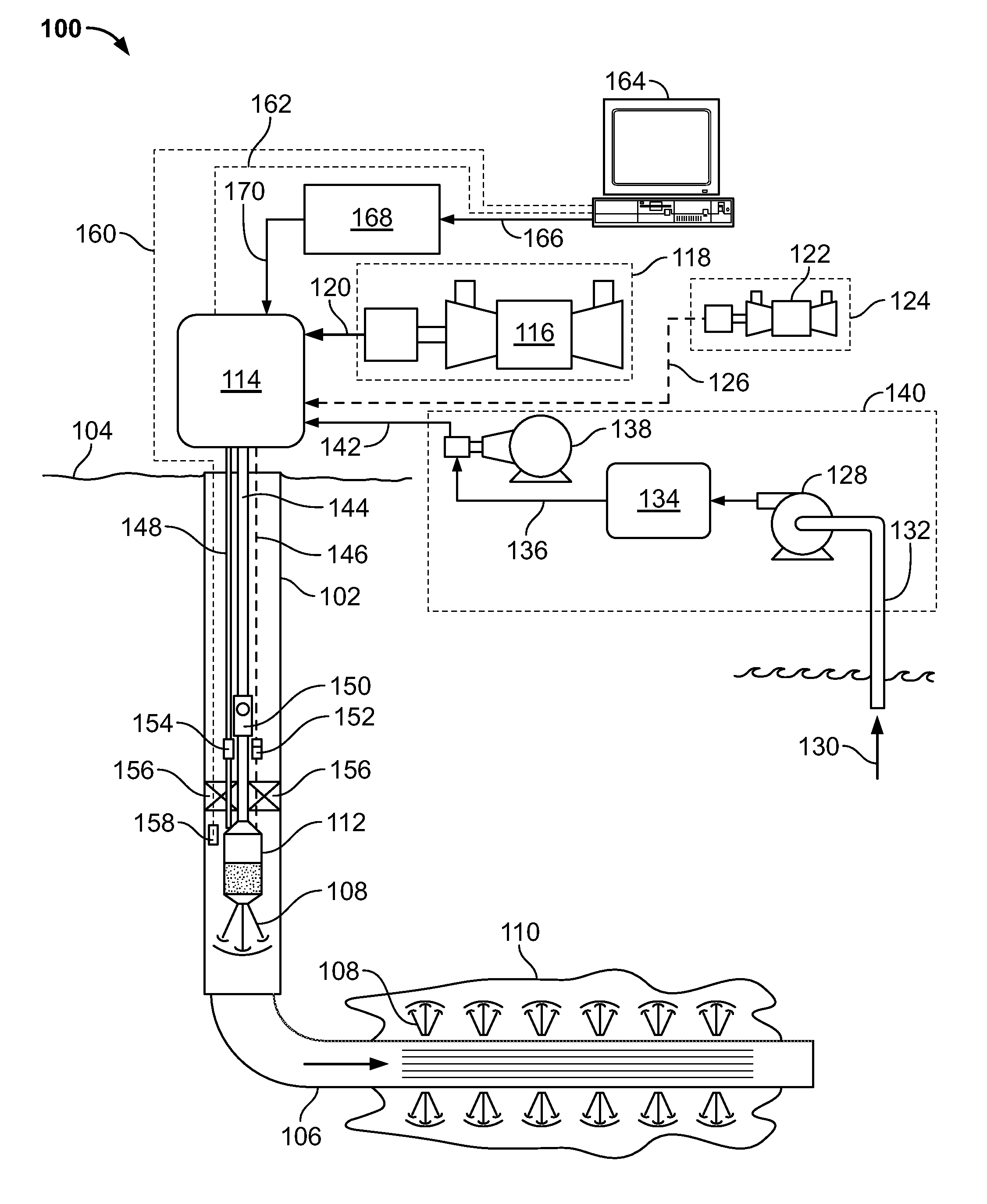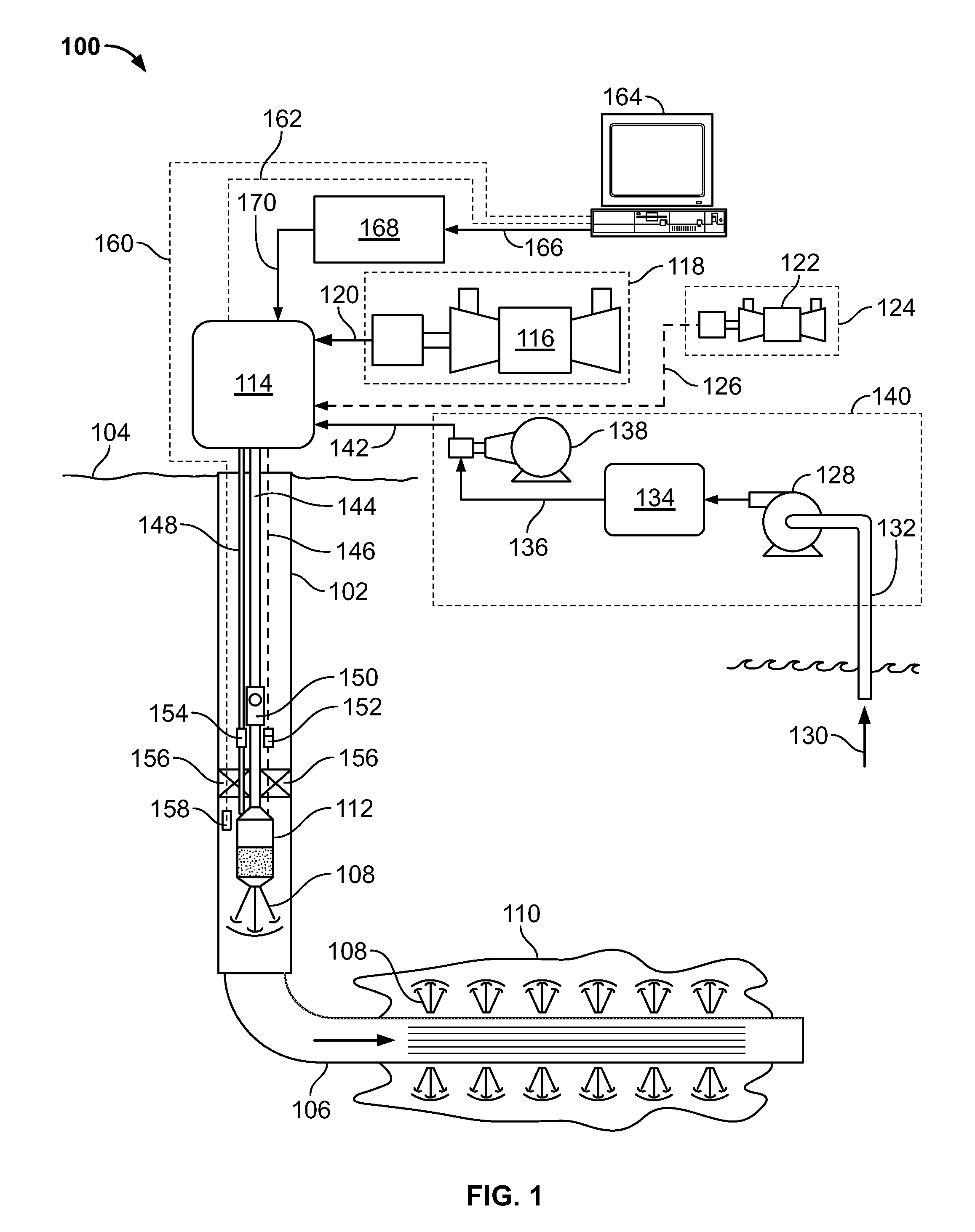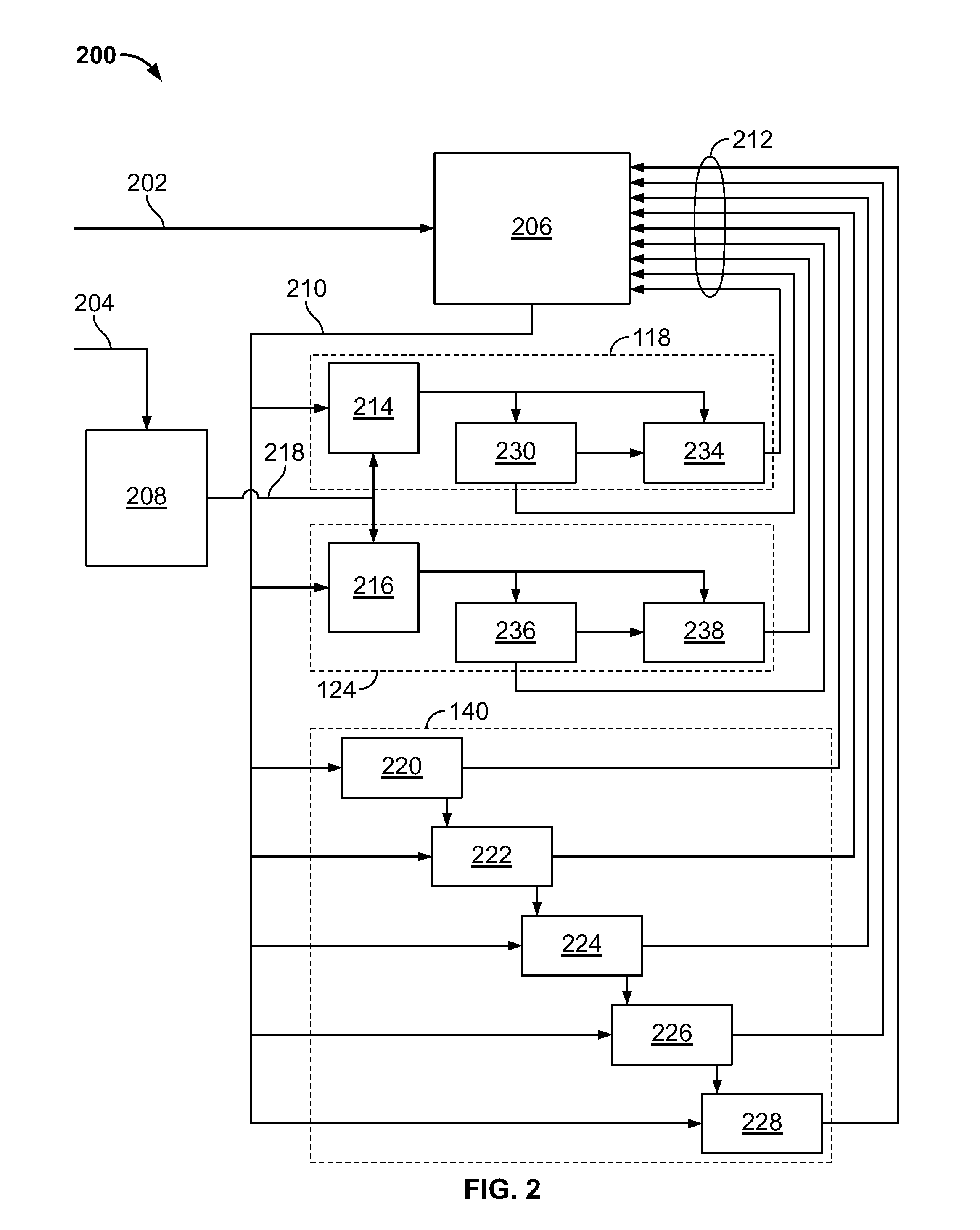Managing treatment of subterranean zones
a technology for subterranean zones and treatment methods, applied in the direction of fluid removal, borehole/well accessories, insulation, etc., can solve the problems of large energy consumption of steam generated large energy consumption of steam produced for injection into wells, and large cost associated with production of steam
- Summary
- Abstract
- Description
- Claims
- Application Information
AI Technical Summary
Benefits of technology
Problems solved by technology
Method used
Image
Examples
Embodiment Construction
[0009]The present disclosure relates to controlling a system for treating a subterranean zone using heated fluid introduced into the subterranean zone via a well bore. The fluid is heated, in some instances, to form steam. The subterranean zone can include all or a portion of a resource bearing subterranean formation, multiple resource bearing subterranean formations, or all or part of one or more other intervals that it is desired to treat with the heated fluid. The fluid is heated, at least in part, using heat recovered from near-by operation. The heated fluid can be used to reduce the viscosity of resources in the subterranean zone to enhance recovery of those resources. In some embodiments, the system for treating a subterranean zone using heated fluid may be suitable for use in a “huff and puff” process, where heated fluid is injected through the same bore in which resources are recovered. For example, the heated fluid may be injected for a specified period, then resources with...
PUM
 Login to View More
Login to View More Abstract
Description
Claims
Application Information
 Login to View More
Login to View More - R&D
- Intellectual Property
- Life Sciences
- Materials
- Tech Scout
- Unparalleled Data Quality
- Higher Quality Content
- 60% Fewer Hallucinations
Browse by: Latest US Patents, China's latest patents, Technical Efficacy Thesaurus, Application Domain, Technology Topic, Popular Technical Reports.
© 2025 PatSnap. All rights reserved.Legal|Privacy policy|Modern Slavery Act Transparency Statement|Sitemap|About US| Contact US: help@patsnap.com



